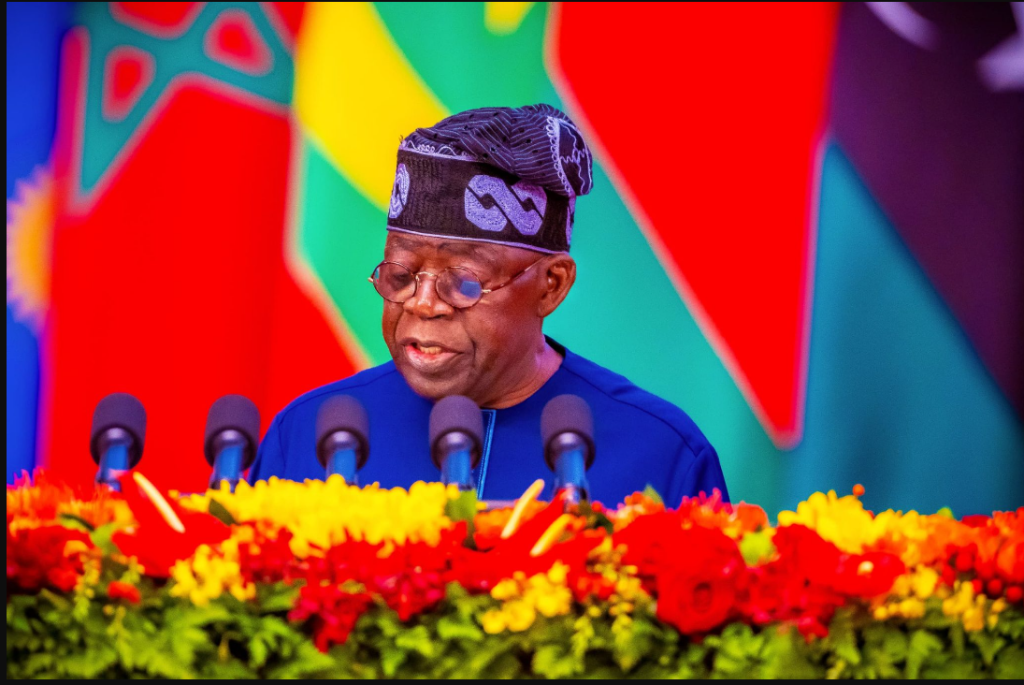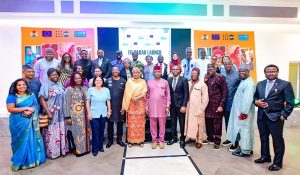
Tinubu’s love for China trips
After a two-week trip abroad, President Bola Tinubu returned to Nigeria on September 15, marking his 24th international journey since taking office in May 2023. This latest excursion to China, his most frequent destination, underscores Tinubu’s apparent belief that the key to revitalizing Nigeria’s economy lies in strengthening ties with the Asian powerhouse.
During his visit, the presidency claimed Tinubu engaged in high-profile meetings with President Xi Jinping and oversaw the signing of five Memorandums of Understanding (MoUs) focusing on road construction, rail infrastructure, and nuclear energy development. Addressing the Nigerian community in China, Tinubu defended his administration’s controversial economic reforms, particularly the removal of fuel subsidies that have led to skyrocketing petrol prices across Nigeria.
“Nigeria is going through reforms, and we are taking very bold and unprecedented decisions,” Tinubu stated, drawing comparisons between China’s advanced infrastructure and Nigeria’s aspirations. He urged Nigerians to accept the current hardships, framing them as necessary sacrifices for future prosperity.
However, Tinubu’s enthusiasm for China’s model and his call for patience from Nigerians have been met with skepticism at home. The President’s appeal for acceptance of exorbitant fuel prices, which have now surpassed N1,000 per liter in some regions (Port Harcourt actually sold for 2,100 per litre as at the time of writing this), overlooks the severe economic strain on businesses and individuals. Small and medium enterprises (SMEs), a sector thriving in China, are struggling to survive in Nigeria due to high energy costs and an unfavorable business environment.
The Nigeria-China relationship is complex and increasingly interdependent. As of 2023, bilateral trade stood at $22.6 billion, with China emerging as Nigeria’s top global trading partner and third-largest in Africa. Chinese companies, particularly CECCC, are involved in numerous high-profile infrastructure projects across Nigeria, including the Lagos-Ibadan railway and the Abuja Light Rail.
Yet, this relationship is not without its challenges. Just before Tinubu’s departure for China, three Nigerian aircraft were seized by a Chinese company over a disputed contract, highlighting the potential pitfalls of deepening economic ties. Moreover, Nigeria’s debt to China, exceeding $4 billion, raises concerns about the long-term implications of this partnership.
Tinubu’s admiration for China’s governance model, particularly its stance on corruption and economic management, presents a stark contrast to Nigeria’s realities. While praising China’s zero tolerance for corruption, Tinubu faces the challenge of addressing endemic issues in Nigeria, such as the reported daily theft of 400,000 barrels of oil and the inefficiencies of state-owned enterprises like the NNPC Ltd.
The President’s vision of emulating China’s economic success overlooks fundamental differences between the two nations. China’s economy, the world’s second-largest with a GDP of $17.96 trillion, is built on a strong foundation of SMEs and local economic competition. In contrast, Nigeria’s economy remains heavily dependent on oil exports and federal allocations, with limited diversification and local production.
CSR REPORTERS is concerned that as Tinubu continues to look eastward for economic inspiration, the challenge lies in adapting China’s successful strategies to Nigeria’s unique context. This requires not just signing MoUs and making grand pronouncements, but implementing systemic changes that address corruption, improve infrastructure, and create an enabling environment for businesses to thrive.
The road ahead for Nigeria is undoubtedly challenging. While Tinubu’s efforts to seek international partnerships and investments are commendable, the true test of his administration will be its ability to translate these diplomatic engagements into tangible improvements in the lives of ordinary Nigerians.









